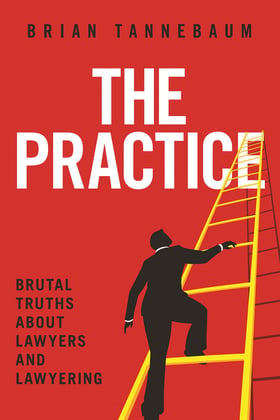
If you are practicing law, and you want to, or already do own your own law firm, it will help your practice flourish if you understand some basic principles about money.
Profession vs Business
In their article, "The Professional versus the Business Model in Law and Medicine", Gary Becker and Richard Posner present a very interesting discussion of what you face as a professional running your own law firm. From the article...
The traditional concept of the profession (the concept that is undergoing change) provides an interesting contrast to the concept of the profit-maximizing business firm. In the business model, the goal is profit maximization in a competitive environment that operates in a basically Darwinian fashion (survival of the fittest); risk is pervasive and both extraordinary profits and devastating losses are real possibilities. Employment and leadership in such an environment attract many and repel many. The people it attracts tend to be aggressive and daring. The ones it repel tend to be cautious and thoughtful.
In the traditional professional model, risk both upside and downside is trimmed by a combination of regulation and ethics both aimed at muting competition. With muted competition the lawyer or doctor can realistically aspire to a safe upper-middle-class income, but he is unlikely to become wealthy. The result, in combination with requiring postgraduate education and qualifying exams for entry into the profession and subjecting members of it to professional discipline, is to attract a type of person quite different from the entrepreneurial type—the latter a type exemplified by such extraordinarily successful college drop-outs as Bill Gates, Steve Jobs, and Mark Zuckerberg. The professional model attracts a more studious, intellectual, risk-averse type of person.
In a nutshell, as a lawyer, your primary responsibility is to serve the needs of your client by being a great lawyer. It is not to make a profit. It is to be a great lawyer.
Whether you are starting a law practice out of school or coming from Biglaw, as soon as you decide to start your own law practice, you are at the same time making a decision to start your own business. The reason is pretty simple. You are running a business of the practice of law.
Because you are a business, the same fundamentals apply to you as any other business: your revenue needs to exceed your expenses if you want to remain in business. In order to build a profitable business, you need to have some focus on money, either making more or spending less.
"The Practice" by Brian Tannebaum
Brian Tannebaum (Follow Brian on Twitter) is a criminal defense lawyer in Miami Florida. He is also the author of "The Practice: Brutal Truths About Lawyers and Lawyering", a book written to help lawyers understand, from Brian's perspective, what it takes to start and run a small law practice. While the book is meant for lawyers, the principles apply across the board as it relates to starting a small business of any kind.
Brian is not one to dance around the issues. He is a successful lawyer who is giving his readers the skinny on what it takes to be a successful lawyer.
One of the sections of his book is on the topic of making money as a lawyer. Many of the insights are so practical that I wanted to highlight them here, and encourage you to read his book for the details.

Are you ashamed of making money as a lawyer?
I don't know how the money grubbing lawyer stereotype was created, or when it was created. All I know, as a service professional myself is, you cannot practice your craft in your own practice if that practice isn't making some amount of money.
Unless you are independently wealthy already, and your law practice is more of a hobby than a way to make a living, you need to focus in part on making money.
Does this mean money needs to be your primary focus?
According to Brian, "If your only purpose for going to law school, for practicing law, is to make money, then you have no sense of the higher calling that is the profession."
The bottom line is, your top priority should be to be a great lawyer and building a practice around helping people in need of your expertise. To become a great lawyer you will need to work long and hard to develop your skills as well as your practice. You shouldn't be ashamed of making money as a result.
Are you a Rainmaker yet?
I am sure you, like every other business person just starting out, want to make money now. Unfortunately, law practices, like other types of businesses, often take a little while to ramp up in making a profit.
However, today, as Brian puts it, there is a term "running around the Internet" to help would be solo practitioners make money now.
Rainmaker
There is a funny sarcastic tone in this section of Brian's book and for good reason. There is no quick fix to becoming a rainmaker. Twitter isn't going to get it done. SEO is far from making you a rainmaker. Taking out a billboard on the side of the major highway is not going to make you a rainmaker. No. Making it "rain" requires something Twitter can't provide you.
You have to be a good lawyer. No scratch that. You have to be an excellent lawyer.
According to Brian, a rainmaker, the real deal, is a lawyer who has spent time, lot's of time, perfecting their craft. They put the time in developing a reputation for delivering excellent results and as a result, built a network of deep relationships with influential people in their community.
In other words, it takes time and hard work to become a true rainmaker. If you think it can be done with an iPad, a coffee shop and a Twitter account, according to Brian, you are wasting your time. And I agree with Brian.
Don't seek to become a rainmaker. Seek to become a great lawyer who can make it "rain" as a result.
Do you charge the right amount for your legal services?
I cannot stress enough how important it is for a law firm to establish a reputation for excellence, and then charge the fees that reflect that reputation. A few critical points that Brian wants you to keep in mind include:
- Don't charge what everyone else charges - The key here is to be better than everyone else at what you do, so that you attract the clients who value that level of expertise and want to pay for it. It takes time to build a solid reputation, but a solid reputation is the absolute key to charging a premium for your services.
- Know what your billable rate is - You may never bill by the hour but you really should be able to tell a client how you arrive at your fee for the service being performed. Also, knowing what you are worth per hour will help you bill appropriately for the services you perform, even if they are fixed fee jobs.
- Calculate your billable hour - This is part overhead part what the market is willing to pay for your time. The overhead part is that you need to charge enough to cover your cost of staying open, and do so on a hourly basis. The market part is what people are willing to pay for your services. This is largely a function of the value you deliver that people want to pay for, and that they may not be able to find anywhere else.
- Nonrefundable fees - If your state allows it, make it so you are not required to refund your fees to your clients. Your economic unit is time in the day. You should be compensated for any time you invest in providing services to your client.
Don't Work for FREE
You went to school, in many cases three years longer than most. You worked either at a big law firm or cut your teeth at a small firm. Why would you now work for free?
The trick to making sure you get paid for the work you do comes down to two things:
- Set the precedent by building a reputation that you don't work for free
- Retain the clients who want to pay for your services
Whether Brian knows it or not, his thoughts on the subject of not getting paid for the work you do are largely a function of how you market your legal services. If you start with Twitter and SEO, you will likely retain clients who don't truly value your services, and therefore wont pay for them.
If you start however by building a solid reputation, one client at a time, you will likely have more than your fare share of clients who not only have money to pay for your time, but are happy to do so.
Briann has some really valuable insights that are worth summarizing here.
- Depending on the type of law you practice, payment plans typically mean "non-payment plans". I agree with Brian from the perspective of making sure you get paid for the work you do, when you do it, or before you start the work. If you must do a payment plan, make sure the plan isnt longer than the time it takes you to do the work.
- If you start doing the work because you think the client is good for it, there is a good chance that you will not get paid for your work, because generally, if they haven't paid you yet, they are not good for it.
- Get the all of the money up front if you can. If you can't never settle for less than half up front. The key here is feeling like you deserve to be paid, and knowing how to ask for your fees when due.
- If a client doesn't pay or ignores your invoices and emails, stop work immediately. You are not a charity and should not be donating your time to anything other than pro bono work.
Conclusion
In short, there are no "get rich quick" schemes in the practice of law. How you make money as a lawyer starts with how good of a lawyer you are, and how respected you are by the folks that matter most.
If your goal is to make money practicing law, then your mission needs to be becoming the best lawyer you can be, and build a reputation around that excellence. Money and profit are a natural, very healthy byproduct of your performance and you should never be ashamed of making a good living being an awesome lawyer.






